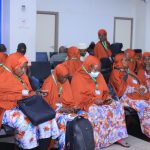Rwanda commenced solemn commemorations on Sunday to mark the 30th anniversary of the 1994 genocide, a period of mass slaughter perpetrated by Hutu extremists against the Tutsi minority over a devastating 100-day period. During this time, over 800,000 individuals, including men, women, and children, predominantly Tutsis but also moderate Hutus, fell victim to the brutal onslaught, as families and communities were torn apart in one of the darkest chapters of the late 20th century.
Three decades later, Rwanda, despite its traumatic past, has undergone significant reconstruction under the leadership of President Paul Kagame. However, the profound scars of the genocide continue to resonate across the region, serving as a somber reminder of the atrocities committed.
As part of the tradition, April 7 marks a pivotal moment in the nation’s history, commemorated by President Kagame lighting a remembrance flame at the Kigali Genocide Memorial, the resting place of over 250,000 victims. The day, known as “Kwibuka 30,” signifies a time for reflection and remembrance, with foreign dignitaries joining Kagame in paying homage to the lives lost.
The events of Sunday herald the beginning of a week-long period of national mourning, during which Rwanda observes a somber silence, with flags flown at half-mast. Public gatherings are subdued, and entertainment activities are curtailed as the nation reflects on its painful history.
International bodies, including the United Nations and the African Union, also participate in remembrance ceremonies, underscoring the global significance of honoring the memory of the genocide’s victims.
Despite the passage of time, the wounds inflicted by the genocide remain raw, with countless families still grappling with the loss of loved ones. The failure of the international community to intervene and prevent the atrocities has left a lasting impact, underscoring the imperative of vigilance against hate and division.
The genocide, triggered by the assassination of Hutu President Juvenal Habyarimana, resulted in a frenzy of violence perpetrated by Hutu extremists and militias, targeting Tutsis and moderate Hutus alike. The brutality witnessed during the genocide, including mass killings and widespread sexual violence, remains etched in the collective memory of the nation.
In the aftermath of the genocide, Rwanda embarked on a journey of healing and reconciliation, establishing community tribunals to address the atrocities committed. While these efforts have yielded some measure of justice, challenges persist, with many perpetrators still at large and tensions lingering in the region.




















